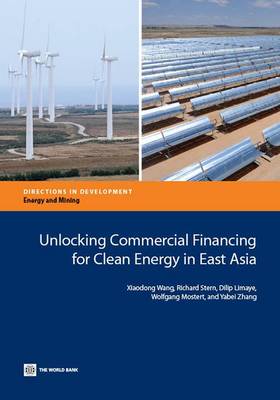Directions in development
1 total work
Unlocking commercial financing for clean energy in east Asia
by Xiaodong Wang
Published 5 October 2013
Unlocking Commercial Financing for Clean Energy in East Asia was written for government decision makers in middle and high-income countries, members of international financing communities, and practitioners. In East Asia, all middle-income countries have national targets for energy efficiency and renewable energy, and some even have targets for carbon reduction. However, a major hurdle to achieving a sustainable energy path is mobilising the required financing. Policy makers must determine how to unlock commercial financing to scale up clean energy investments. This title builds on recent experience in applying public financing instruments and attempts to address the following issues: when and under what circumstances to use public financing instruments, which instrument to select, and how to design and implement them most effectively. First and foremost, effective and conducive policies are essential to catalysing commercial investment in clean energy. Once the right policy regime has been put in place, public financing mechanisms designed to mitigate risks and close financing gaps have proven to play a major catalytic role in kick-starting substantial investments in clean energy. Public financing mechanisms for energy efficiency are particularly important to mitigating financiers' risk perceptions, to aggregating small deals, and to enhancing the interest and capacity of domestic banks. Public financing for renewable energy can provide long-term loan tenure to match the long payback period, mitigate technology risks, and increase access to financing for small and medium enterprises. The selection of public financing instruments should be tailored to the market barriers, the targeted market segments, the regulatory environment, and the maturity of the financial market. Engaging domestic banks through credit lines and guarantees has had the greatest impact in unlocking private financing. Dedicated funds and mezzanine and equity funds can effectively increase access to financing for small and medium enterprises and clean energy start-ups. Finally, the impact of public financing instruments can be substantially increased if they are packaged with technical assistance.
